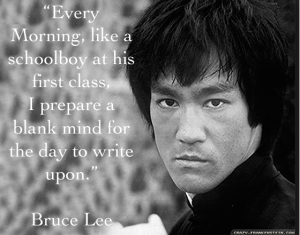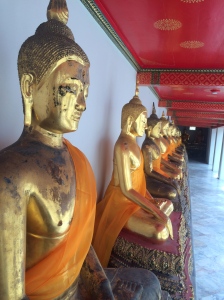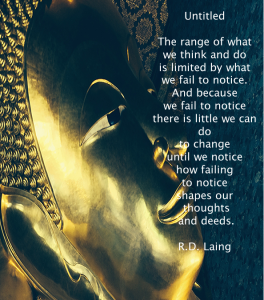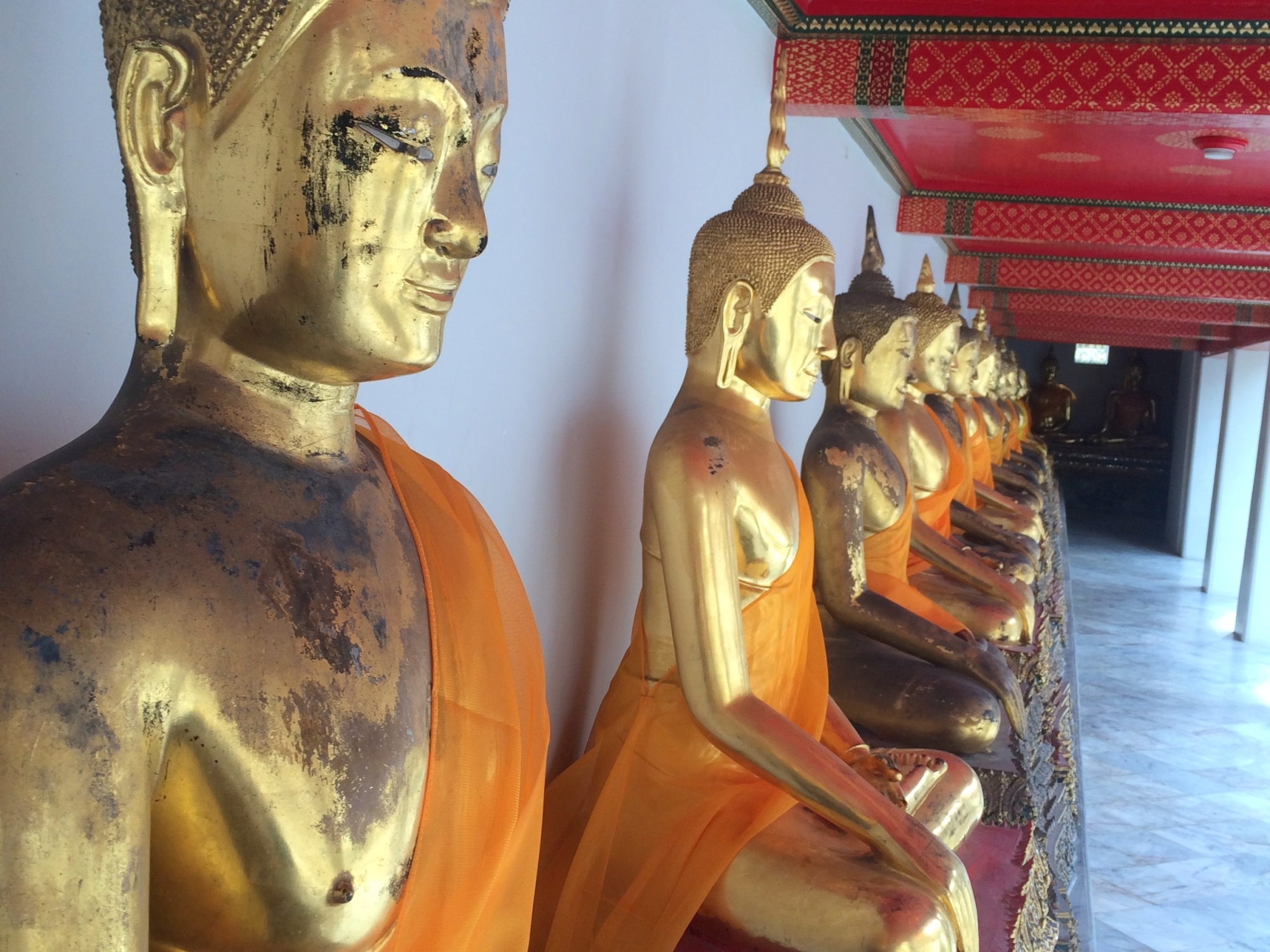
We’ve heard a lot about the success of mindfulness in recent years but let’s us just stop for a minute in order to be mindful about what it is and what it can and cannot do.
Take a breath.
Perhaps another one.
Where are you?
What are you doing?
Become aware of that place, its sounds, its sensations.
Take a moment of quality self care. Are you there?
Once you locate yourself in your body by these simple coordinates, you can then begin to see that our minds are already as full as a crowded shopping mall. It is about being aware of whatever is in our heads, because that is where we usually live.
In the past decade, the mindfulness revolution has gained worldwide attention, and even become a household word. Mindfulness has seeped into several areas of life now: psychotherapy, medicine, education and the police. It has even been co-opted by the corporate world. In some cases this is to bring enlightened principles to business practice, but in other instances, I wonder if it is just one more ruse to seek advantage over already fatigued consumers. Science has chimed in with numerous studies demonstrating the effects of mindfulness, showing that the brain can be emotionally rewired and may even be a hologram.
That said, mindfulness is for everyone, no matter which layer of society you find yourself. Anyone can do it, anywhere, anytime: but to expect it to solve all of your problems is to misunderstand its nature. It is a practice that takes some doing in order to enhance being. It’s very ‘meta’ in that you watch yourself doing what you’re doing while you are doing it. That enhances your sense of well being. By being mindful, at least more frequently, it offers more openness and detachment from the complex and multiple issues life throws at us. It is sometimes however promoted unfortunately in the same manner as consumer product, although at least it does not enslave you to poor health and mindless accumulation.
The Meaning of Mindfulness
Mindfulness is not a thing to be acquired. Contrary to what the word might suggest, mindfulness is not about being ‘full’ of mind, stuffing yet another gap inside us until becomes just another item that we have to have in order to be perfect. It is about not being that. Mindfulness books, training, apps and weekends are all very well, but it is how you apply it to your own life that matters.Personally, I have not done any of these as mindfulness to me is the ultimate DIY practice. You don’t even need a yoga mat! Your tools are your body, mind and heart. That’s the blessing of it; you do not need an intermediary to become mindful. You have the whole universe within. The quality of intention is everything.
Since people tend to think in polarities in order to understand a concept, could we not swing to the opposite extreme and question that if mindfulness is not about filling the mind, must it therefore about emptying the mind? Perhaps, it is not that either, as it depends which layer of the mind you are referring to, although it is true that minds can become clogged just like teeth, or your hair, and we don’t think twice about cleaning teeth or washing our hair. But which of us prioritizes clearing debris from the mind as a daily practice?
When we think of the mind, we believe it is poised somewhere inside our heads. The mind has associations of cold processing of facts but as Kabat-Zin tells us, the word ‘mind’ in Chinese is linked to the ‘heart’. So we might just as well say ‘heart-fulness’ or the ‘heartmind’. This brings it closer to the definition of compassion which in turn brings it closer to the core of what we need to adjust. More heart, less mind, or more heartfelt mind, and more mind-informed heart. More heartfelt awareness, not more cerebral stimulation. Admittedly, this can be challenging when we are bombarded by other people’s issues and needs, which leaves little space to distil our own needs. Without a sense of those, we have little to offer anyone else. Through mindfulness, we begin to ‘Come to Our Senses’. Then we can be less like Mr Duffy in Dubliners (1914) who, wrote Joyce: ‘lived a short distance from his body.’
It is this disjointed mental activity that has driven people to seek out solutions such as mindfulness to get us out of the hyper-stimulated state, but it is not just another pill. In this culture we often believe we can relax by switching on the TV, slouching on the sofa, and that’s fine. But that may well have the very opposite effect and send your stress levels through the HD screen. Switching it off and just being present with yourself may be the best favour you ever do for yourself.It is a great opportunity to fall awake.
The Origins of Mindfulness in Buddhism

Mindfulness has its roots in Buddhist Meditation practices from 500 BC. The intention behind the practice was a simple focus on the present, starting with awareness of the breath and the body. Then it became a central principle, preparing for meditation. The story goes that someone asked the Buddha “What have you gained from meditation?” The Buddha said “Nothing. However, let me tell you what I have lost: Anger, Anxiety, Depression, Insecurity, Fear, Old Age and Death.” This reply can trigger a quantum moment, or peak experience, where change becomes easier than usual. Just imagine a life without those draining emotions. Difficult right?- precisely because we are so attached to them. We define ourselves through the entanglements that create most of our suffering as the underlying joy is often obscured. Yet the point is not to get rid of them, but to be able to manage them better, to live with anxieties and stress much more effectively. Mindfulness allows us just to stand back and say “Oh, so that is happening again. I wonder why?” And we feel a bit clearer, more able to acknowledge the cycles of behaviour and difficult emotions that boomerang back until we have fully dealt with them.
Keeping your conscious mind present instead of letting it run all your ingrained unconscious thought patterns is quite a challenge. But imagine what you could do if you did not allow all these old habitual programmes to run the show like an anxious backseat driver. It would free up more space inside and perhaps release energy. One of the first steps you can take to disengaging the old patterns is simply being mindful, starting with the breath. Mindfulness creates buffer zone to slow down your decision-making process so it helps to increase your options making choices less triggered.
So how do we manage to achieve this in a mega-busy world of information overload? Here are ten quick reminders,and all of us, no matter how developed we may think we are, will be called back to this point in the present as often as life deems necessary.
TEN TIPS TO INCREASE MINDFULNESS
1) Slow Down: When the mind is spinning it can create the worst kind of anxiety spiral. Slowing down the pace allows this to settle down. Paradoxically, slowing down can help you do fewer things more effectively. Even walking can become meditation if slowed right down almost to stillness as Thich Nhat Hanh has shown so well.
2) Tune In: Tune in to yourself. As Kabat-Zin explains: why would you play in an orchestra without tuning the instruments first? Tuning in the morning can make a big difference to your day.
3) Breathe: Nothing is as important as breathing, yet we are so often unaware of it happening. Bringing your attention back to the breath needs repeating as it is one of our most unconscious processes yet the one that bridges mind and body.
4) Want to do it: Intention is the magic key that ignites the passion which is the fuel. The fact that you want to change your state of energy is the greatest starting point and carries the momentum forward. It starts with doing but influences being.
5) Get into Hemi-Sync: Be aware of habitual modes of thinking and ask whether they are constructive or not. Be aware of one-track thoughts, and polarised thinking patterns all of which take you down the same well worn road over and over. Develop an understanding of when you are in ‘whole’ mode, including apparently multiple or contradictory points and enhancing your intuition.
6) Feel your heart space: Direct thoughts out of your head and push them into your heart and see if it makes a difference. The best way to feel this energy is simply to place one or both hands on your chest.
7) Become aware of Chi energy: This basic fact of existence is that there is a universal life force channelling through us all the time. This is your Chi or Qi, also known as Prana. How often are we aware of this incredible reservoir of energy? Broaden your focus to include it.
8) Be receptive: For every Yang phase, there is a Yin emerging, and the power of the yin is not to be underestimated though it gets a bad rap, being equated with all things negative, empty or shifting. Receptivity allows cycles of change to be more easily perceived.
9) Relate more to nature to inanimate objects: The Cartesian split between body and mind has encouraged us to believe that we are not in the world. This promotes disjointedness. Perhaps we have been deceived about that? This connection is not just to animals, but trees, and plants and rocks, everything. There is a live energy charge within everything if we just pause to feel it.
10) Keep it Simple: If there are more than three things to remember then it’s not simple enough. So just opt for the first three! If you don’t have time for meditation, slowing down to body scan is the place to start. It does not have to be deep meditation.
Just remember that old joke: “Meditation. It’s not what you think.”
So to with mindfulness; it is not to become full, or increase the power of the mind, or to empty it, but to simply apply a particular quality of attention to the world you may not have done previously that allows you to be in your experience more fully.
And the last word about mindfulness? Let’s go to psychologist, R.D. Laing who wrote a poem called ‘Untitled.’

The range of what we think and do
is limited by what we fail to notice.
And because we fail to notice
there is little we can do
to change
until we notice
how failing to notice
shapes our thoughts and deeds.
© Kieron Devlin, 2014
all rights reserved



I really loved this ! what a great reminder of all the most fundamental points regarding mindfull meditation, be it sitting down or walking your dog 🙂 . In just these few pages there are so very many book teachings so well put together and clearly exposed in a personal way. I wonder which are your favorite ones … 🙂
Mindfulness … another way of saying Being present in the Now ! Thank you so much for sharing !
LikeLike
Thank you. Yes, they are just reminders, but I haven’t read many books on Mindfulness to be honest. I have gleaned a lot from online sources, but mostly my own direct experience of it- and all the times I should have used it but switched on automatic. But I did conduct an experiment using mindfulness with students to see if it helped relieve anxiety – and I think I’ll do another post on that as the results proved interesting – how body scanning made such a difference to the way they felt. But if any words bring you closer to mindfulness then poems by Rumi and Hafiz can give you a straight hit to the core, but numerous other writers too.
I love your bold exploration of the inner worlds and dimensions too!
LikeLike
Oh, i could tell it was your personal experience you were speaking from !
What i meant was it was quite a few books worth 😉 !
and thanks for the tips ! i have read some Rumi, but not Hafiz ! must check him out then !!
LikeLike